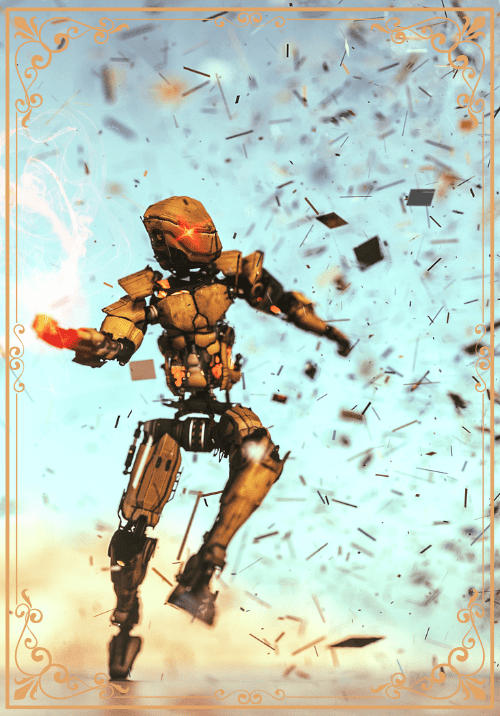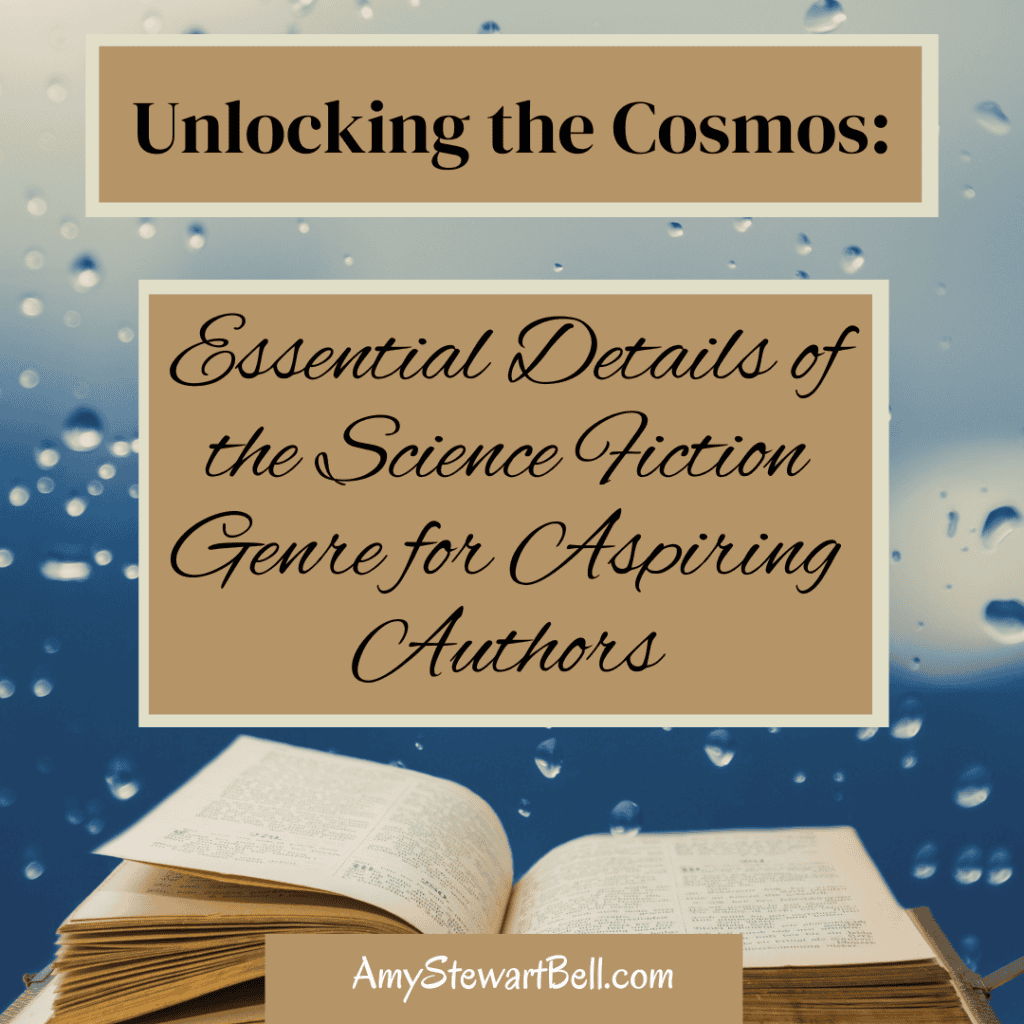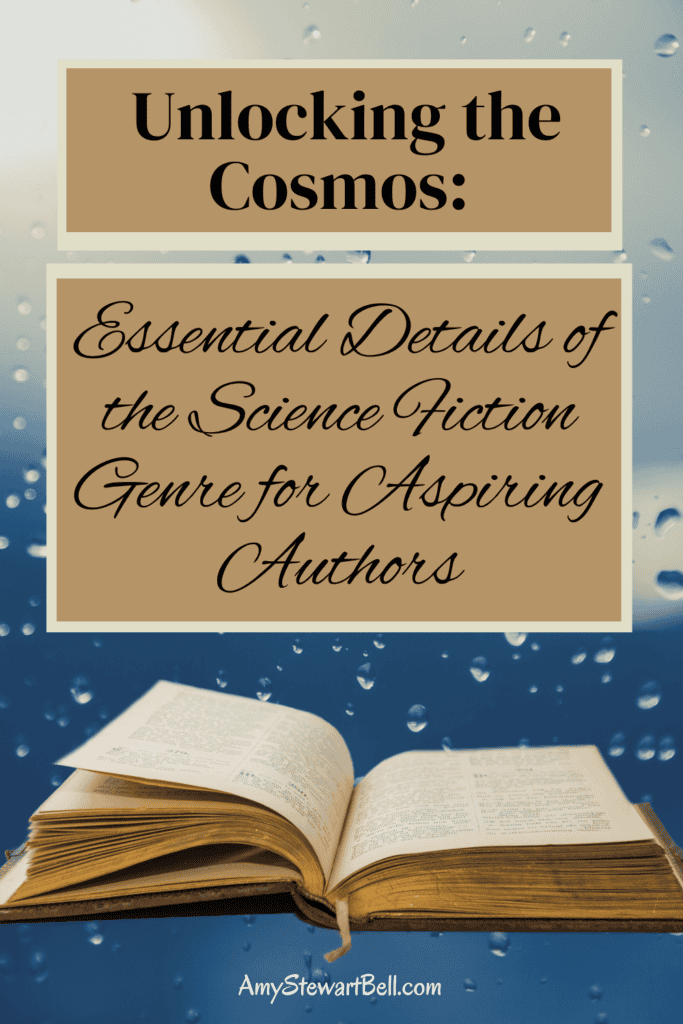Understanding Science Fiction: A Brief History and Its Evolution
Science fiction is not just a genre; it’s a vibrant quilt sewn together with the threads of imagination, innovation, and the human experience. The history of science fiction is as fascinating as the tales it tells, tracing its origins back to ancient myths and philosophical musings that dared to dream beyond the stars. From Mary Shelley’s groundbreaking “Frankenstein,” often hailed as one of the first true sci-fi novels, to H.G. Wells’ thought-provoking narratives like “The Time Machine,” classic sci-fi authors have laid the groundwork for what we now embrace as a dynamic literary form.
As we delve into the evolution of science fiction, we witness its transformation through various cultural lenses and technological advancements. The mid-20th century brought us pivotal sci-fi works such as Isaac Asimov’s “Foundation” series and Philip K. Dick’s explorations of reality in “Do Androids Dream of Electric Sheep?” These masterpieces not only entertained but also challenged societal norms and questioned our very existence.
Today, science fiction continues to evolve at breakneck speed, reflecting contemporary issues like climate change and artificial intelligence while pushing boundaries that were once thought unimaginable. With every new story crafted by passionate writers, we are invited into worlds where anything is possible—where humanity meets its future head-on in both awe-inspiring and cautionary tales. As we celebrate this ever-evolving genre, let us remember its power to ignite our imaginations and inspire generations to come!
The Core Elements That Define the Science Fiction Genre

Science fiction is a genre that ignites the imagination and propels us into realms of possibility. At its core, science fiction themes explore the profound questions of existence, often delving into humanity’s relationship with advanced technology and the universe itself. Speculative fiction elements breathe life into narratives that challenge our understanding of reality, pushing boundaries and inviting readers to ponder what lies beyond our current grasp.
Futuristic settings serve as a canvas for these explorations, where authors craft intricate worlds filled with breathtaking landscapes and societies shaped by innovation. The beauty of world-building in science fiction is its ability to transport us to places where the laws of physics bend, where alien civilizations thrive, or where dystopian futures serve as cautionary tales. Each detail enriches the narrative, making it not just a story but an experience that resonates on multiple levels.
Advanced technology in sci-fi acts as both a tool and a character in its own right—shaping plots and influencing human behavior. From artificial intelligence to space travel, these innovations provoke thought about their implications on society and ethics. As we immerse ourselves in these narratives, we are compelled to reflect on our present choices and the potential paths ahead.
In essence, science fiction is more than just entertainment; it’s a powerful lens through which we can examine our hopes, fears, and aspirations for tomorrow. It invites us to dream big while reminding us that every great leap forward begins with imagination.
Diverse Subgenres of Science Fiction: Finding Your Niche as an Author
The world of science fiction is a vast and thrilling landscape, teeming with diverse subgenres that invite authors to explore their wildest imaginations. As a passionate writer, finding your niche within this expansive genre can be both exhilarating and daunting. Let’s delve into some captivating subgenres that can ignite your creativity and help you carve out your unique voice.
Hard science fiction is where the rigor of scientific accuracy reigns supreme. It challenges authors to weave intricate plots based on real physics, biology, or technology, pushing the boundaries of what we know while remaining grounded in reality. On the opposite spectrum lies soft science fiction, which prioritizes character development and societal implications over strict adherence to scientific principles. This subgenre allows for a more fluid exploration of human emotions set against fantastical backdrops.
Then there’s the cyberpunk genre—gritty urban landscapes filled with advanced technology juxtaposed against societal decay. It’s a thrilling playground for those who want to tackle themes of corporate greed and digital dystopias while crafting unforgettable characters navigating this neon-lit world.
For those drawn to grand adventures among the stars, space opera characteristics offer an enticing avenue. With sprawling galaxies, epic battles, and larger-than-life heroes, space operas transport readers into realms where anything is possible—perfect for authors eager to unleash their imagination on an interstellar scale.
Lastly, consider the poignant dichotomy between dystopian vs. utopian themes that permeate many sci-fi narratives. Dystopias often serve as cautionary tales about our current trajectory as a society; they invite writers to reflect on pressing issues while envisioning bleak futures ripe for rebellion or redemption. Meanwhile, utopian stories inspire hope by presenting ideal societies that challenge us to strive for something better—a powerful reminder that change begins within ourselves.
In this rich tapestry of subgenres lies your opportunity as an author! Embrace your passions and let them guide you toward the niche that resonates most deeply with you—because in every corner of science fiction awaits an adventure just waiting to be told!
Creating Compelling Characters and Plots in Sci-Fi Writing
Creating compelling characters and plots in sci-fi writing is an exhilarating journey that ignites the imagination and challenges the boundaries of reality. At the heart of every unforgettable science fiction story lies a deep commitment to sci-fi character development. Crafting relatable protagonists is essential; these characters must resonate with readers, even as they navigate alien worlds or grapple with advanced technologies. Their struggles, dreams, and fears should mirror our own, allowing us to connect with them on a profound level.
When it comes to plot structure for science fiction stories, it’s crucial to weave intricate narratives that captivate and surprise. A well-constructed plot not only propels the story forward but also reveals the complexities of its characters. Conflict and resolution are vital elements within sci-fi narratives; they drive character growth and propel the story towards its climax. Whether it’s battling dystopian forces or navigating moral dilemmas posed by artificial intelligence, these conflicts challenge our heroes in ways that are both thrilling and thought-provoking.
As you embark on your writing adventure, remember that every detail matters—each decision shapes your narrative universe. Dive deep into your characters’ psyches, explore innovative plot twists, and let your passion for storytelling shine through every page. The world of science fiction awaits your unique voice!
You may also like: The Art and Science Behind Captivating Character Creation
The Importance of Research and Scientific Accuracy in Sci-Fi Writing

In the realm of sci-fi writing, the thrill of imagination knows no bounds. Yet, amidst the dazzling galaxies and futuristic technologies, lies an essential pillar that holds everything together: research and scientific accuracy. Balancing creativity with realism in writing is not just a task—it’s an exhilarating challenge that can elevate a story from mere fantasy to a compelling narrative grounded in plausibility.
When crafting worlds filled with advanced civilizations or groundbreaking inventions, delving into scientific concepts is crucial. It’s about more than just sprinkling technical jargon throughout your prose; it’s about weaving authentic elements into your narrative fabric. Researching scientific concepts for stories allows writers to explore the “what ifs” while staying tethered to reality. This fusion creates a rich tapestry where readers can suspend disbelief but still feel the weight of potential consequences.
Moreover, consulting experts for authenticity in sci-fi writing can be a game-changer. Engaging with scientists or professionals in relevant fields not only lends credibility to your work but also sparks new ideas that you may never have considered on your own. Their insights can lead to unexpected plot twists or innovative technologies that resonate deeply with readers who crave both excitement and intellectual stimulation.
In essence, embracing research doesn’t stifle creativity; instead, it ignites it! When writers allow their imaginations to soar within the framework of scientific principles, they craft stories that captivate minds and inspire dreams of what could be. So let us champion this harmonious marriage of creativity and realism—because in doing so, we pave the way for narratives that not only entertain but also enlighten!
You may also enjoy: Examining the Importance of Research for a Novel: Exploring Setting, Location, Background, and Characters
Exploring Themes: What Makes a Great Science Fiction Story Resonate?
At the heart of every great science fiction story lies a tapestry woven with complex philosophical themes that challenge our understanding of humanity. Sci-fi isn’t just about futuristic technology or intergalactic battles; it’s a profound exploration of what it means to be human in an ever-evolving universe. The best sci-fi literature pushes boundaries, inviting readers to reflect on their own existence and the world around them.
Exploring humanity through science fiction allows authors to delve into the core of our values, fears, and aspirations. It serves as a mirror reflecting society’s struggles and triumphs, often providing social commentary that resonates deeply with readers. These narratives compel us to confront pressing issues—be it ethics in artificial intelligence, environmental crises, or the complexities of identity in a diverse world.
What makes these stories truly resonate is their ability to transcend time and space while addressing universal truths. They provoke thought and inspire change by challenging us to envision alternative futures or reconsider our present reality. In this way, sci-fi becomes not just entertainment but a vital platform for dialogue about who we are and who we aspire to become. Embracing these themes can ignite passion within us all as we navigate the intricate dance between technology and humanity’s enduring spirit.
You may also enjoy: Unlock Unbelievable Storytelling Superpowers: The Ultimate Guide to Mastering Story Creation
Conclusion: Embrace Your Imagination—Start Crafting Your Own Science Fiction Masterpiece Today!
LET’S CONNECT!
There are many ways to connect withAmy Stewart Bell. We would love to know what you think and any of the topics we offer. We welcome your comments and want to interact with you!
If you haven’t yet, grab your copy ofOnce Captured, the first in Amy’s Captive Series. And be on the watch for the second in the series, Uncharted Captivity, to drop!
You can also connect in other areas. Join us on Instagram@AmyWritesAlland on Facebook@AmyWritesAll.
Be sure to join our community newsletter, and you will get even more inside info!







